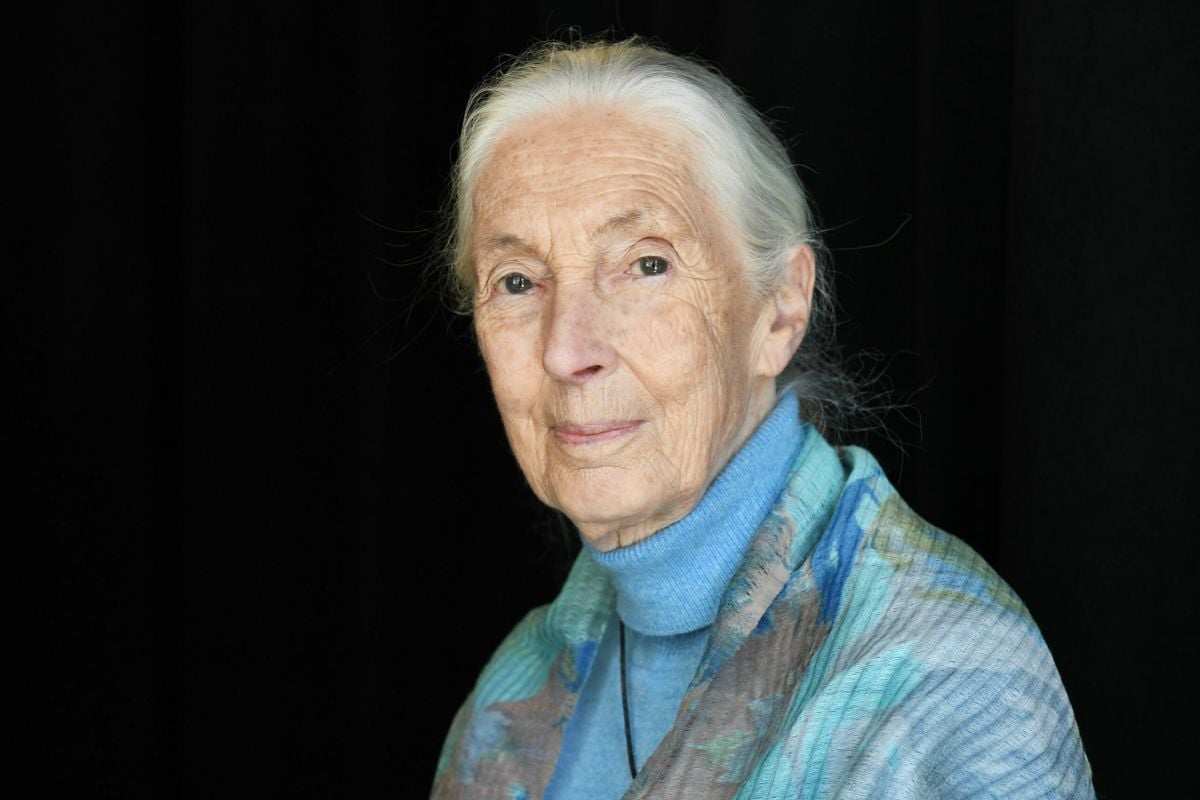Jane Goodall’s life was full of simple, meaningful habits that helped her stay healthy and happy for so many years. Here are some of the beautiful lessons we can learn from the way she lived.
Living to 91 is an amazing thing—but what makes Dr. Jane Goodall’s life truly special is how she lived it. Born in 1934, she grew up loving animals and dreaming of working with them. In 1960, that dream came true when she moved into a small tent near a forest in Tanzania to study chimpanzees.
Day after day, Jane watched the chimps closely. She learned that they laugh, play, and even use tools—just like people do! Her discoveries changed what the world knew about animals forever.
But Jane didn’t stop there. She became one of the world’s strongest voices for protecting nature. Through her Jane Goodall Institute and Roots & Shoots program, she helped save forests, animals, and inspired millions of young people around the world to care about the planet.
Even in her eighties, Jane was still traveling, teaching, and sharing her message of hope. Her life reminds us that staying curious, kind, and connected to nature can help us live longer and feel more alive.
Here are 11 beautiful lessons from Jane Goodall’s life that can inspire us all.
She Had a Strong Sense of Purpose
Jane Goodall didn’t just have a job—she had a mission. What started as long, quiet days in the forests of Tanzania watching chimpanzees grew into a lifelong journey of helping animals and protecting the planet.
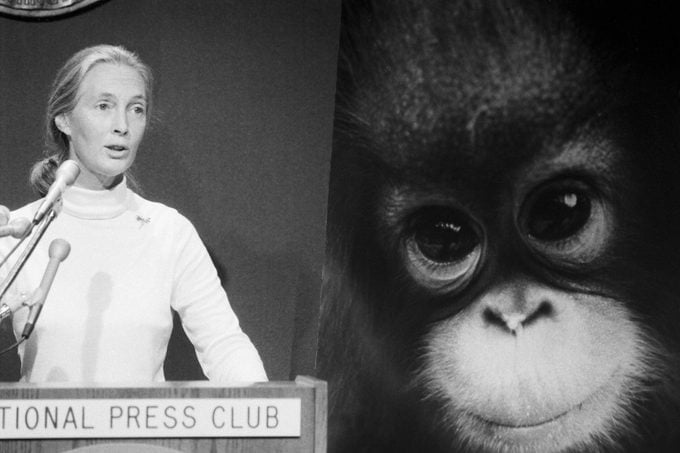
While many people dream about slowing down when they retire, Jane did the opposite! Even in her eighties and nineties, she spent almost 300 days a year traveling the world to share her message of hope and kindness toward all living things.
In her book Jane Goodall: 40 Years at Gombe, she wrote, “You cannot get through a single day without having an impact on the world around you. What you do makes a difference, and you have to decide what kind of difference you want to make.”
Studies show that having a sense of purpose—something to look forward to each day—can keep our minds sharp, our bodies healthy, and our hearts happy. Purpose gives life meaning. It’s what helps us get out of bed in the morning and do something good for others and ourselves.
She Walked Every Day
Jane wasn’t the type to spend hours in a gym (though we bet she liked mice more than treadmills!). But she got plenty of exercise in her own way. Her fieldwork meant walking, climbing, and hiking through the forest—every single day. That kind of activity is a workout all on its own!
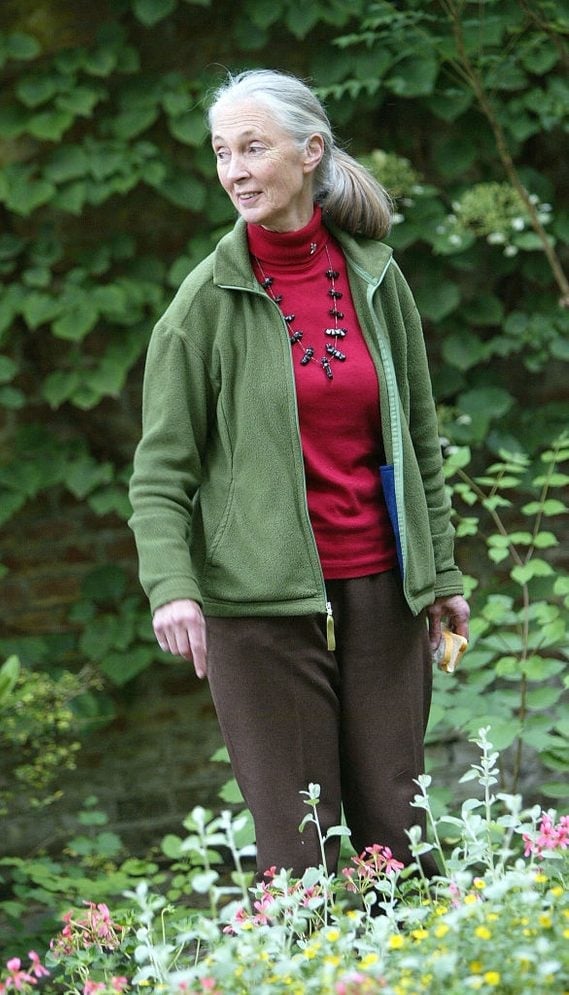
Even after she left the forest, Jane stayed active through her busy travel and speaking schedule. She once said in an interview, “I think the most important thing is to keep active, and to hope that your mind stays active.”
Science agrees—moving your body every day is one of the best things you can do to live a long, healthy life. Regular activity keeps your heart strong, your muscles and bones sturdy, and your energy up as you age.
She Spent Lots of Time Outdoors
Jane Goodall’s life was filled with fresh air and sunshine. She spent years walking through jungles, watching chimpanzees under the shade of tall trees, and breathing in the earthy smell of the forest. Being outdoors wasn’t just her job—it was her joy.
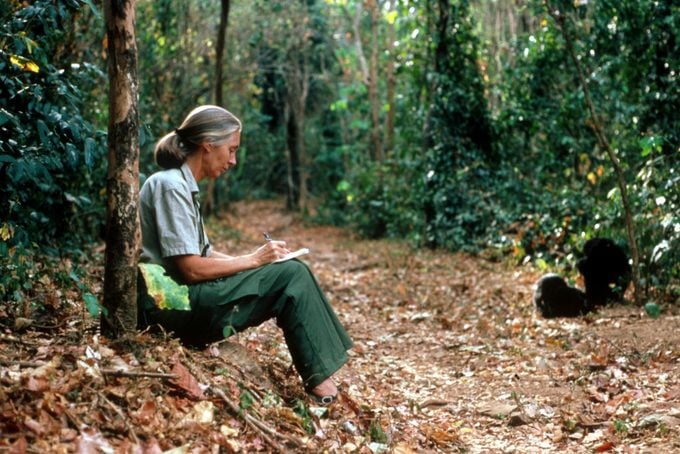
Today, scientists know what Jane probably felt all along: spending time in nature is good for your body and your soul. It helps lower stress, improves sleep, boosts your mood, and even keeps your heart and immune system strong. In Japan, they call it shinrin-yoku, or “forest bathing”—simply spending quiet time among the trees.
A 2022 study found that being outside lowers stress hormones and lifts your spirits in ways that last long after you go back inside. Nature really is powerful medicine—and Jane enjoyed its healing touch nearly every day of her long, beautiful life.
She Ate a Plant-Based Diet
Jane gave up meat many years ago, and she said it gave her more energy than ever. In one interview, she shared, “I have to say that I attribute vast amounts of my energy to the fact that I stopped eating meat. I really, really believe that it helped me.”
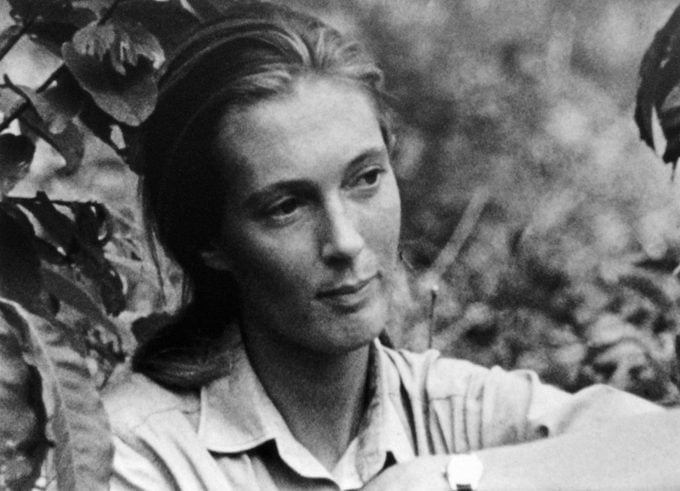
She often said she felt “lighter” and more alive after switching to a plant-based diet. She even helped create a cookbook to encourage others to eat more plant foods. Of course, she still enjoyed her favorite treats—she was known to love cake!—but most of her meals were full of fruits, vegetables, grains, and beans.
Nutrition experts now agree that eating this way can help you live longer and feel better. Diets rich in plants and low in red or processed meats can reduce the risk of heart disease, cancer, and inflammation. Replacing meat with healthy proteins like nuts, lentils, and beans gives your body the fuel it needs to stay strong.
Read Also: Woman, 100, Who Still Goes to the Gym Shares 1 Favorite Food She Must Have Every Friday
She Cultivated Calm
Even with a schedule that would make most of us tired just thinking about it—planes, interviews, lectures, meetings (and the occasional mischievous monkey!)—Jane Goodall somehow stayed calm and peaceful. People often noticed how relaxed she seemed, no matter what was going on around her.
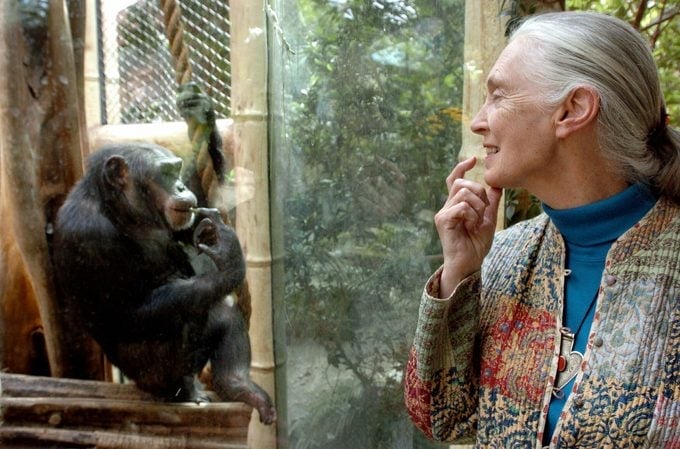
“I’ve cultivated a way that I don’t get stressed very often,” she shared in a 2017 interview. Her secret? Simple mindfulness and quiet reflection. No fancy equipment, no special music—just time to pause, breathe, and pay attention.
She had learned that kind of calm years earlier in the forest, sitting quietly with her notebook, waiting patiently for a chimp to move or make a sound. That quiet focus became a way of life.
Scientists now know that too much stress can harm our health—it raises blood pressure, weakens the immune system, and even speeds up aging. But learning to stay calm and present, like Jane did, helps protect both our body and our mind as we grow older.
She Lived Surrounded by Animals
Animals were at the heart of Jane Goodall’s world—from the dogs she adored at home to the chimpanzees she studied for so many years. She didn’t just observe them; she truly cared about them. While other scientists used numbers to label the chimps, Jane gave them names—like Flo and David Greybeard—because she saw their personalities and emotions.
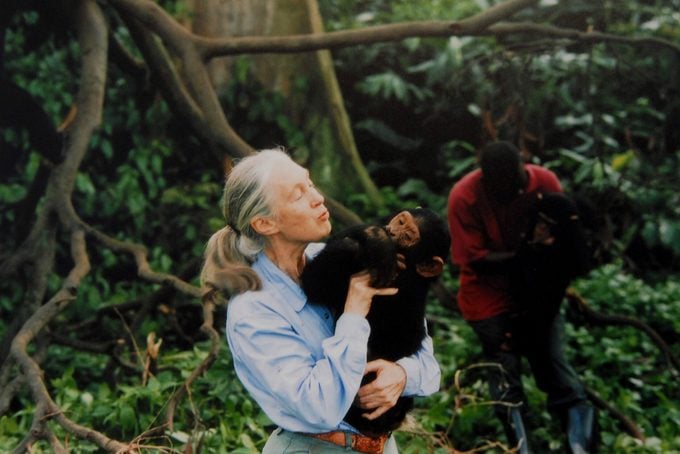
“Only if we understand, can we care. Only if we care, we will help,” she once wrote about protecting animals. That deep empathy became her life’s mission.
Her love for animals brought her joy, comfort, and a sense of connection that lasted her whole life. And when asked which animal she loved most, she admitted it wasn’t the chimp—it was the dog. Like so many of us, she found a best friend in those wagging tails and trusting eyes.
She Made Time for Self-Care
Even with her busy life, Jane Goodall understood the importance of slowing down and taking care of herself. She often reminded others that loving yourself isn’t selfish—it’s necessary.
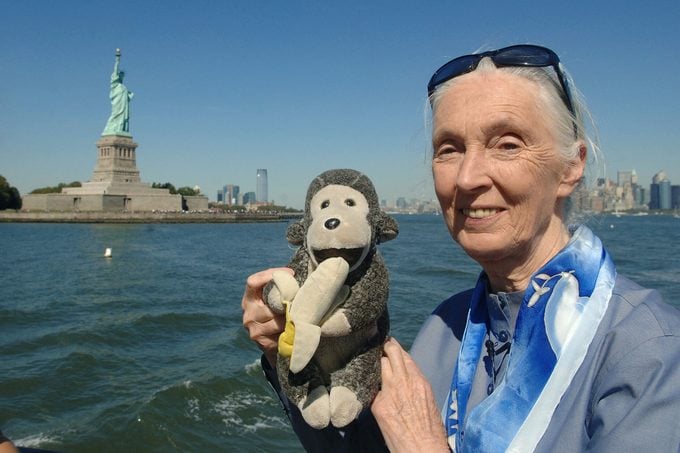
“Have you ever heard the saying that you need to love yourself first? I think this is true in all aspects of life,” she once wrote in her Good for All News newsletter. “We are able to function at our best when we make time to take care of ourselves, mentally and physically.”
Jane knew that rest, reflection, and balance helped her stay strong enough to do her important work. It’s a beautiful reminder that we can’t pour from an empty cup—sometimes, we need to pause and refill it.
She Built Strong Relationships
Even though much of her early work was done alone in the forest, Jane surrounded herself with people who shared her passion and kindness. She built close friendships with her family, her colleagues, and especially the young people in her Roots & Shoots program.
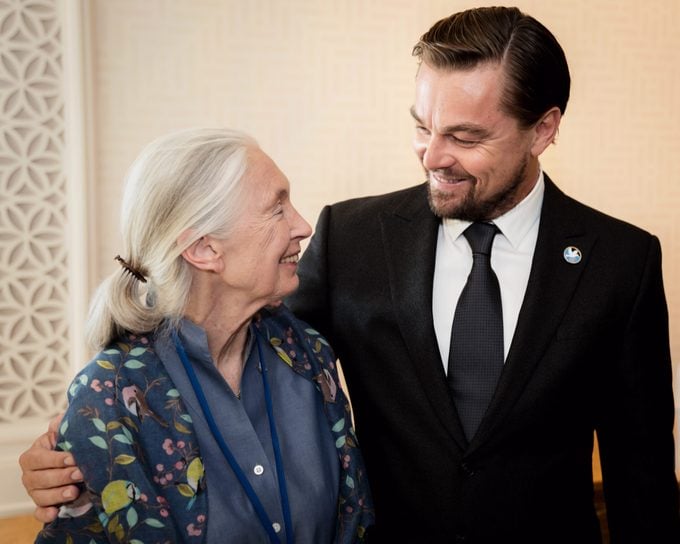
She often said, “Every individual matters. Every individual has a role to play. Every individual makes a difference.” That belief shaped the way she treated others—with respect, love, and encouragement.
Scientists now know what Jane seemed to live by: strong friendships and close connections are one of the biggest secrets to a long and happy life. A nearly 100-year Harvard study found that people with caring, supportive relationships tend to live longer and feel more fulfilled.
She Traveled Regularly
If there was one word that described Jane Goodall, it might be curious. She loved learning new things and meeting new people. Travel gave her the chance to do both.
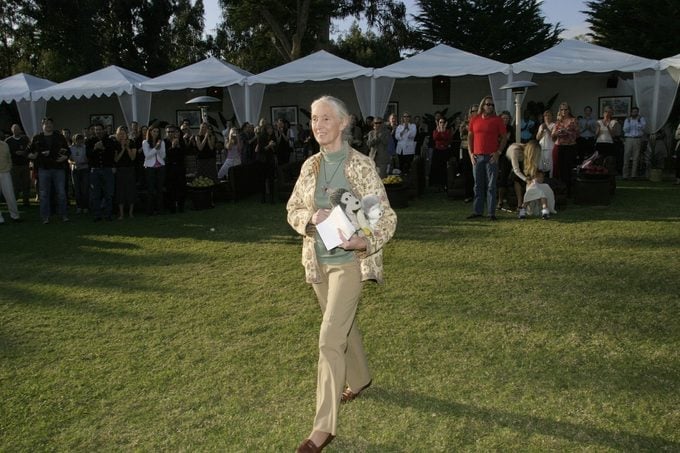
From forests in Africa to cities around the world, she embraced new cultures, new foods, and new ideas. This kind of adventure kept her mind sharp and her spirit young. Scientists say that exploring new places and facing new challenges helps reduce stress, boost memory, and keep the brain active.
Travel also encourages flexibility and understanding—traits Jane shared with the world every day. After all, as fellow biologist Charles Darwin once said, “It is not the strongest who survive, but the most adaptable.” Jane lived that truth beautifully.
She Carried Hope Everywhere
Jane Goodall was famous for her unshakable hope. No matter what was happening in the world—whether it was an environmental crisis or a difficult time—she refused to give up. She carried hope the way most of us carry our phones: always close, always within reach.
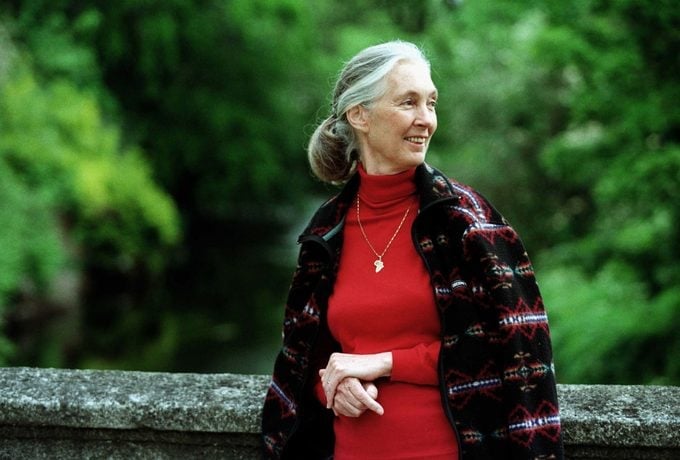
She believed that hope wasn’t just a feeling—it was something you do. In her book The Book of Hope: A Survival Guide for Trying Times, she wrote, “Hope is what enables us to keep going in the face of adversity. It is what we desire to happen, but we must be prepared to work hard to make it so.”
Her message was simple but powerful: don’t let go of hope, even when things look dark. Believe that your actions matter. Like Jane, we can choose to stay hopeful and keep doing good, one small step at a time.
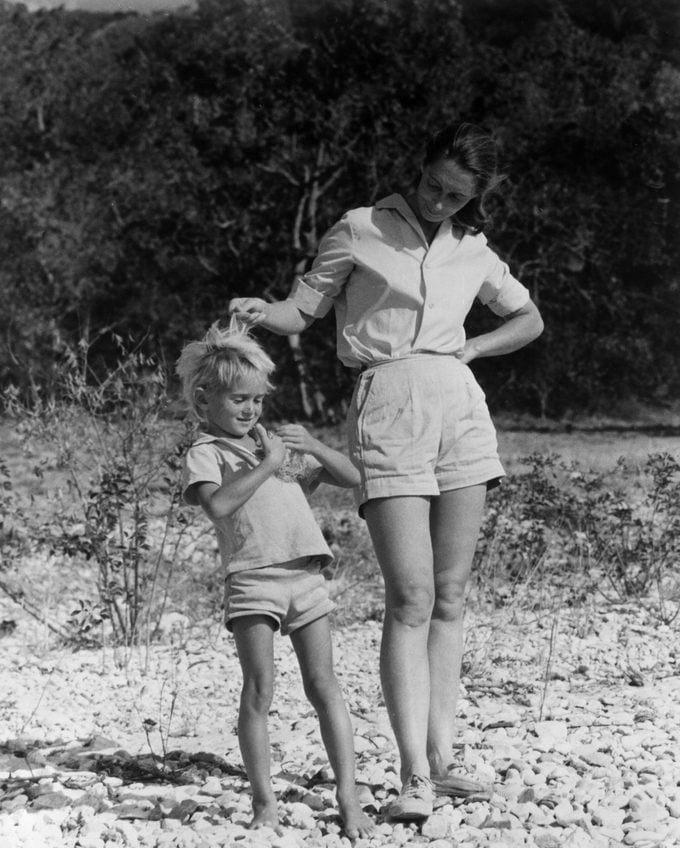
Love Being a Grandma?

Join 12,570+ grandmas who wake up to a cheerful, uplifting email made just for you. It’s full of heart, sprinkled with fun, and always free. Start your mornings with a smile—sign up below! ❤️

